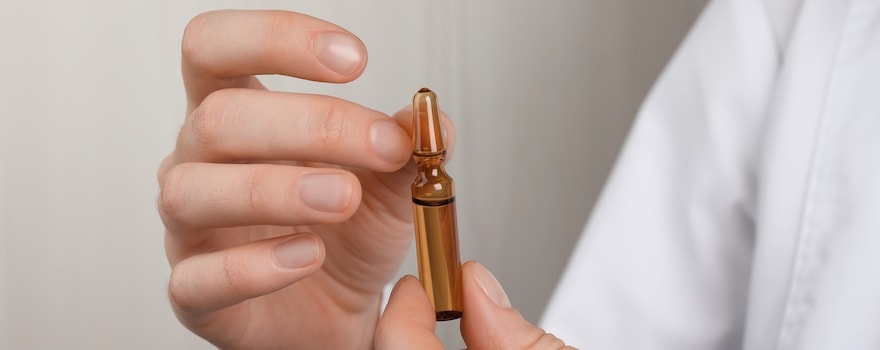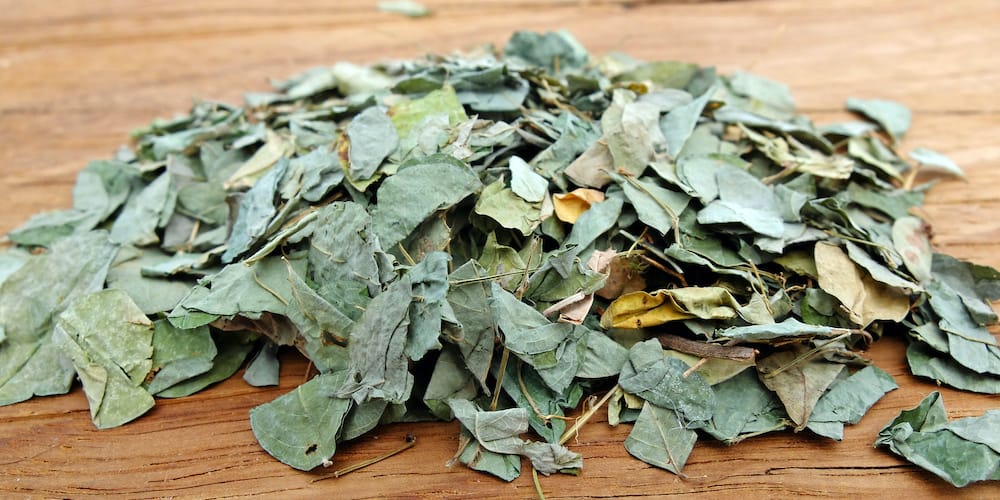Originaire d’Afrique de l’ouest d’Amérique du sud, le Desmodium adscendens est une plante médicinale aux multiples utilisations.
In Europe, it is mainly used to support good liver function, thus acting as a draining agent and protector. This includes when the liver is damaged by medication or chemotherapy.
It also has antispasmodic properties, antihistaminic, antioxidant, antimicrobial and neurological properties.
These effects are explained by the varied composition of desmodium extracts, notably containing saponosides with cleansing and diuretic properties, and flavonoids with anti-inflammatory, immune-stimulating and antioxidant properties. These components are mainly found in the leaves.
Research has recently examined the various traditional and pharmacological uses of desmodium, as well as its potential toxicity, through this study published in 2022 in Food Frontiers.
Is desmodium toxic?
As demonstrated by this first study and this second study, conducted in 2017, low doses of desmodium (1–100 mg/kg) were used without risk in animals. And even at a dose of 300 mg/kg, no significant adverse effect was observed.
On the other hand, a first in vivo example of acute toxicity was observed in 1996 after intraperitoneal administration of Desmodium extract in mice.
25% of mice receiving 300 mg/kg of plant extract showed abdominal contractions and a significant decrease in body temperature compared with untreated animals.
While a dose of 1,000 mg/kg was associated with more severe neurological symptoms, such as reduced spontaneous motor activity and exploratory behavior.
The lethal dose in mice was, however, estimated to be above 3,000 mg/kg. Therefore, there are risks of toxicity but only beyond certain dosages.
Existe t-il des effets secondaires aux doses thérapeutiques ?
La plupart des études n’ont pas démontré d’effets secondaires fréquents du desmodium, lorsqu’on l’utilise à des doses thérapeutiques.
Rare and mild side effects have, however, been reported, such as nausea, vomiting, diarrhea, and abdominal pain. In that case, it would be better to stop the treatment and consult your healthcare professional.

Are there any drug interactions?
This study in vitro showed that Desmodium could induce the production of cytochrome P450, a hepatic enzyme that plays a major role in the elimination of many drug molecules.
Cette plante agirait donc comme inducteur enzymatique. Et peut donc théoriquement interagir avec certains médicaments tels que le thiopental, la zoxazolamine ou certains anticoagulants.
Toutefois, en pratique, aucune interaction entre le desmodium et un médicament précis n’a été rapportée dans les publications scientifiques. Le risque est donc minime.
Par principe de précaution, je recommande donc d’éviter de prendre du desmodium en même temps que vos médicaments. Mieux vaut espacer la prise d’une heure ou les prendre à deux moments différents de la journée.
What are the contraindications?
No contraindications have been demonstrated so far. However, this plant is not recommended for pregnant or breastfeeding women due to the lack of long-term experience and experimental data.
In any case, I advise you to consult your doctor before starting a desmodium course, especially if you are on other treatments or in the case of pregnancy or breastfeeding.
What are the recommended doses?
I recommend a dose between 500 and 2000 mg of desmodium per day for 3 to 6 weeks.
Commercial extracts are mainly available as capsules or ampoules. Prefer extracts standardized for saponins to ensure a consistent level of active ingredients and therefore optimal efficacy.
Sources and scientific studies
Maria Giulia Manzione, Jesús Herrera-Bravo, Javad Sharifi-Rad, Dorota Kregiel, Mustafa Sevindik, Emre Sevindik, Zeliha Salamoglu, Wissam Zam, Sara Vitalini, Christophe Hano, 2022. Desmodium adscendens (Sw.) DC.: A magnificent plant with biological and pharmacological properties.
Amoateng, P., Adjei, S., Osei-Safo, D., Kukuia, K. K. E., Karikari, T. K., & Nyarko, A. K., 2017. An ethanolic extract of Desmodium adscendens exhibits antipsychotic-like activity in mice. Journal of Basic and Clinical Physiology and Pharmacology.
Osbourne Quaye, Precious Cramer, Mark Ofosuhene, Laud K. N. Okine, and Alexander K. Nyarko, 2017. Acute and Subchronic Toxicity Studies of Aqueous Extract of Desmodium adscendens (Sw) DC.
N’Gouemo, P., Baldy-Moulinier, M., & Nguemby-Bina, C., 1996. Effects of an ethanolic extract of Desmodium adscendens on the central nervous system in rodents. Journal of Ethnopharmacology.



